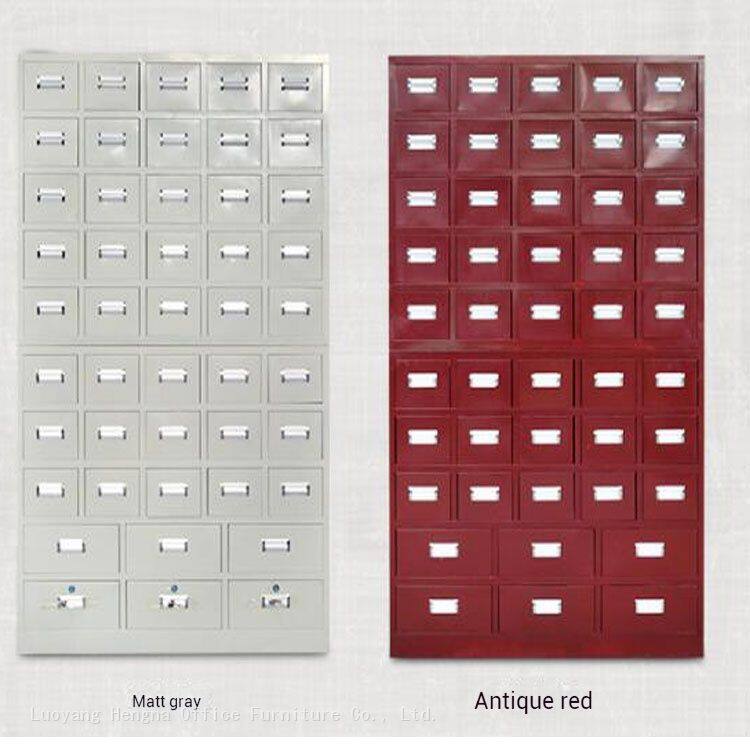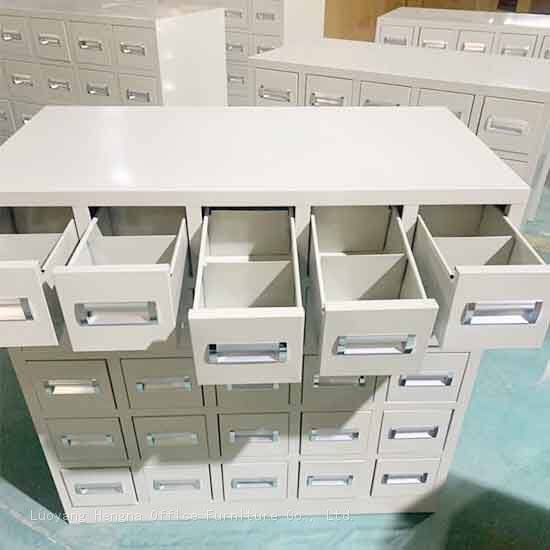-
 Sarah
Hi there! Welcome to my shop. Let me know if you have any questions.
Sarah
Hi there! Welcome to my shop. Let me know if you have any questions.
Your message has exceeded the limit.

How to Store Chinese Herbs Safely: Moisture-Proof Cabinet Solutions
2025-10-25 17:07:19
Chinese herbs have been used for thousands of years to help people stay healthy and treat various health problems. These special plants, roots, and flowers contain powerful natural compounds that can lose their strength if not stored properly. The biggest enemy of Chinese herbs is moisture, which can cause mold, bacteria growth, and loss of healing properties. In this guide, we’ll explore how moisture-proof cabinets can protect your valuable Chinese herbs and keep them effective for longer.
Why Moisture is Dangerous for Chinese Herbs
Moisture might seem harmless, but it can quickly ruin your Chinese herb collection. When herbs get damp, several problems can occur:
Mold Growth: Damp conditions create the perfect environment for mold to grow on your herbs. Mold not only looks unpleasant but can also produce harmful substances.
Loss of Potency: The active compounds in herbs that provide health benefits can break down when exposed to moisture.
Bacterial Growth: Moist environments encourage bacteria to multiply, which can make herbs unsafe to use.
Pest Infestation: Damp herbs can attract insects and other pests that feed on plant material.
Key Features of a Good Moisture-Proof Cabinet
When shopping for a cabinet to store your Chinese herbs, look for these important features:
1. Airtight Seals
A good moisture-proof cabinet should have tight seals around the doors to prevent humid air from getting inside. Look for rubber gaskets or magnetic seals that create a complete closure when the door is shut.
2. Moisture-Absorbing Materials
Many quality cabinets include built-in desiccants (moisture-absorbing materials) like silica gel packets. Some even have special compartments where you can place your own moisture absorbers.

3. Adjustable Shelving
Chinese herbs come in many different sizes and shapes. Adjustable shelves allow you to customize the space to fit everything from small packets of loose herbs to large containers of roots and bark.
4. Temperature Control
Some advanced cabinets include temperature control features to keep herbs at the ideal storage temperature, usually between 50-70°F (10-21°C).
5. UV Protection
Light can also damage herbs over time. Cabinets with UV-protected doors or opaque materials help shield herbs from harmful light rays.
Types of Moisture-Proof Cabinets
There are several types of moisture-proof cabinets available, each with different features:
1. Small Countertop Cabinets
These compact cabinets are perfect for home use or small clinics. They typically hold 10-20 herb containers and fit easily on a kitchen counter or desk.
2. Medium Floor-Standing Cabinets
These larger cabinets can hold 30-50 herb containers and are ideal for regular herb users or small practices. They often come with lockable doors for security.
3. Large Commercial Cabinets
Designed for clinics, pharmacies, or serious herb enthusiasts, these cabinets can hold 100+ containers and often include advanced features like digital humidity controls and temperature regulation.
How to Organize Your Herb Cabinet
Proper organization is key to maintaining your herbs’ quality. Follow these tips:
Step 1: Categorize Your Herbs
Group similar herbs together. You might organize by:
Plant part (roots, leaves, flowers, seeds)
Health benefit (digestive, immune, respiratory)
Frequency of use
Step 2: Use Proper Containers
Even with a moisture-proof cabinet, herbs should be stored in airtight containers:
Glass jars with tight-fitting lids
Food-grade plastic containers with seals
Vacuum-sealed bags for bulk herbs
Step 3: Label Everything
Clearly label each container with:
Herb name (in both English and Chinese if possible)
Date of purchase
Expiration date
Any special storage notes
Step 4: Create a Layout
Place frequently used herbs at eye level for easy access. Store less commonly used herbs higher or lower in the cabinet.
Maintenance Tips for Your Moisture-Proof Cabinet
To keep your cabinet working effectively:
Regular Cleaning
Wipe down the interior with a dry cloth monthly to remove any dust or debris. Avoid using water or cleaning products unless necessary.
Check Seals
Inspect door seals regularly for cracks or wear. Replace damaged seals immediately to maintain the airtight environment.
Replace Desiccants
If your cabinet uses desiccant packs, replace them every 3-6 months or according to the manufacturer’s instructions.

Monitor Humidity
Consider placing a small humidity meter (hygrometer) inside the cabinet to ensure it stays at the ideal 40-60% relative humidity level.
Common Mistakes to Avoid
Even with a good cabinet, these mistakes can compromise your herbs:
Overfilling: Leave space between containers for air circulation.
Mixing Strong and Mild Herbs: Some herbs have strong aromas that can affect others. Store them separately.
Ignoring Expiration Dates: Even properly stored herbs lose potency over time. Use older herbs first.
Storing Near Heat Sources: Keep cabinets away from stoves, heaters, or direct sunlight.
Benefits of Proper Herb Storage
Taking the time to store your Chinese herbs correctly offers many benefits:
Longer Shelf Life: Properly stored herbs can last 2-3 times longer than those stored improperly.
Better Results: Fresh, potent herbs provide better health outcomes.
Cost Savings: You’ll waste less money on herbs that spoil before use.
Safety: Proper storage prevents mold and bacterial growth that could make herbs harmful.
Investing in a quality moisture-proof cabinet is one of the best ways to protect your Chinese herb collection. By keeping moisture out and maintaining proper storage conditions, you preserve the healing properties of these valuable natural remedies. Remember to choose a cabinet with the right features for your needs, organize your herbs thoughtfully, and maintain your cabinet regularly. With proper care, your Chinese herbs will remain potent and effective whenever you need them, supporting your health and wellness journey for years to come.
Tags: How to Store Chinese Herbs Safely, Moisture-Proof Cabinet Solutions

